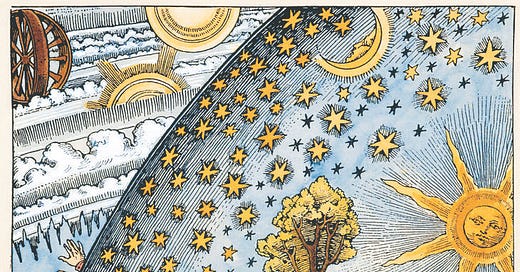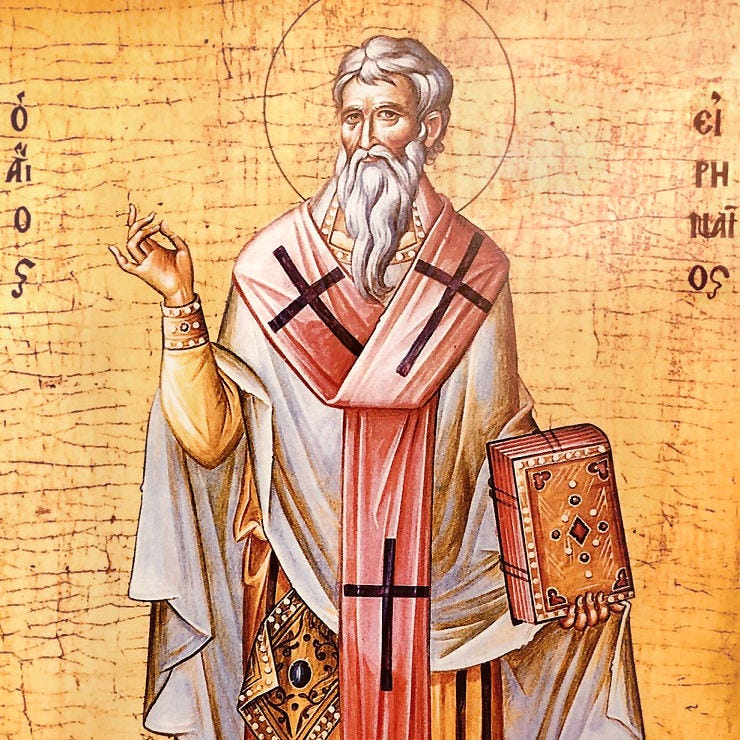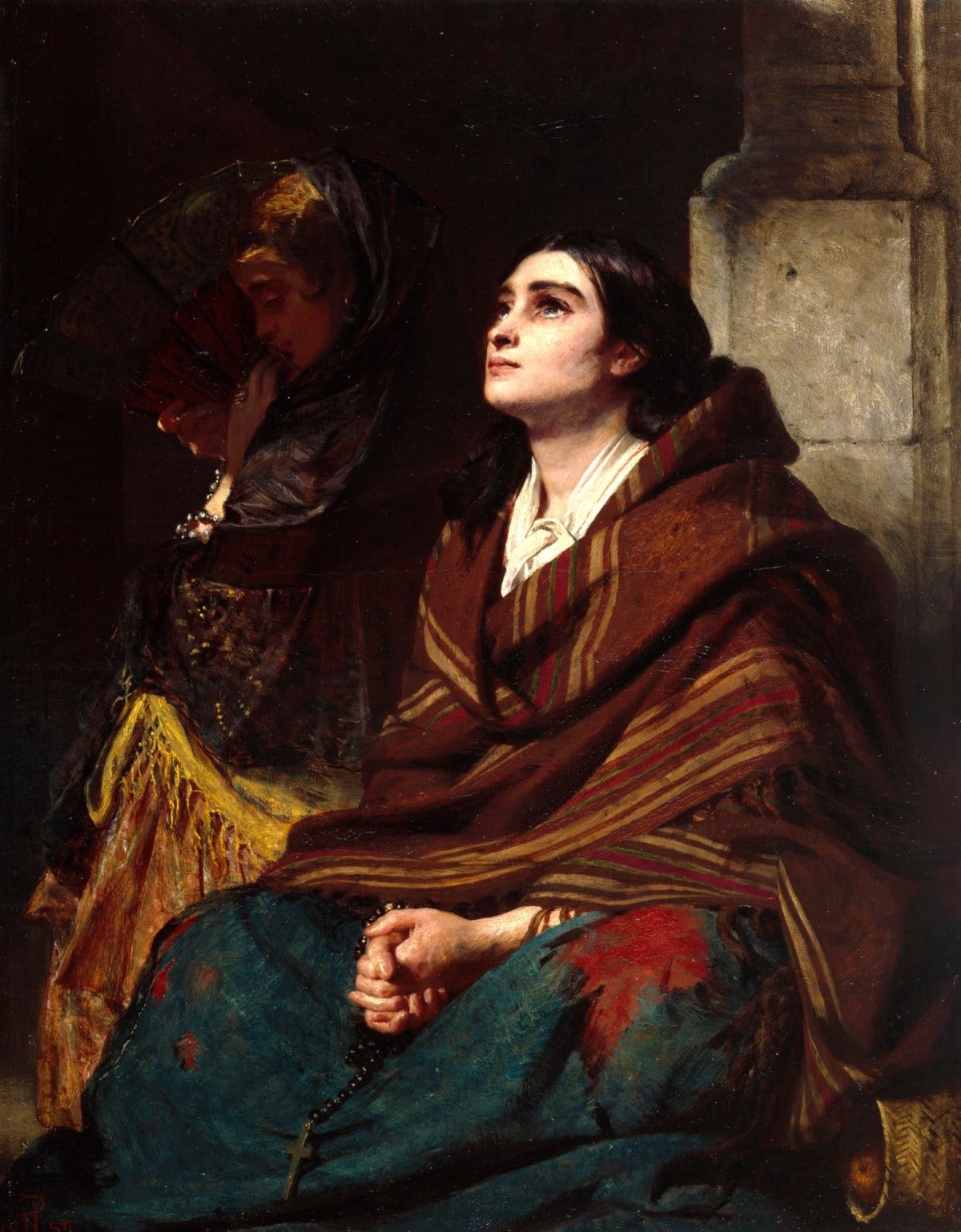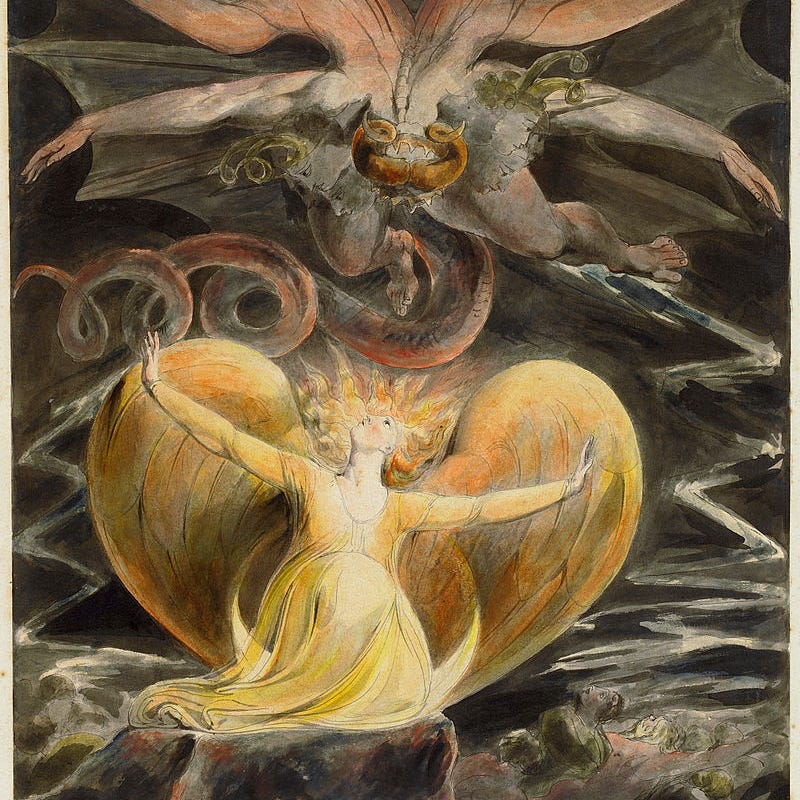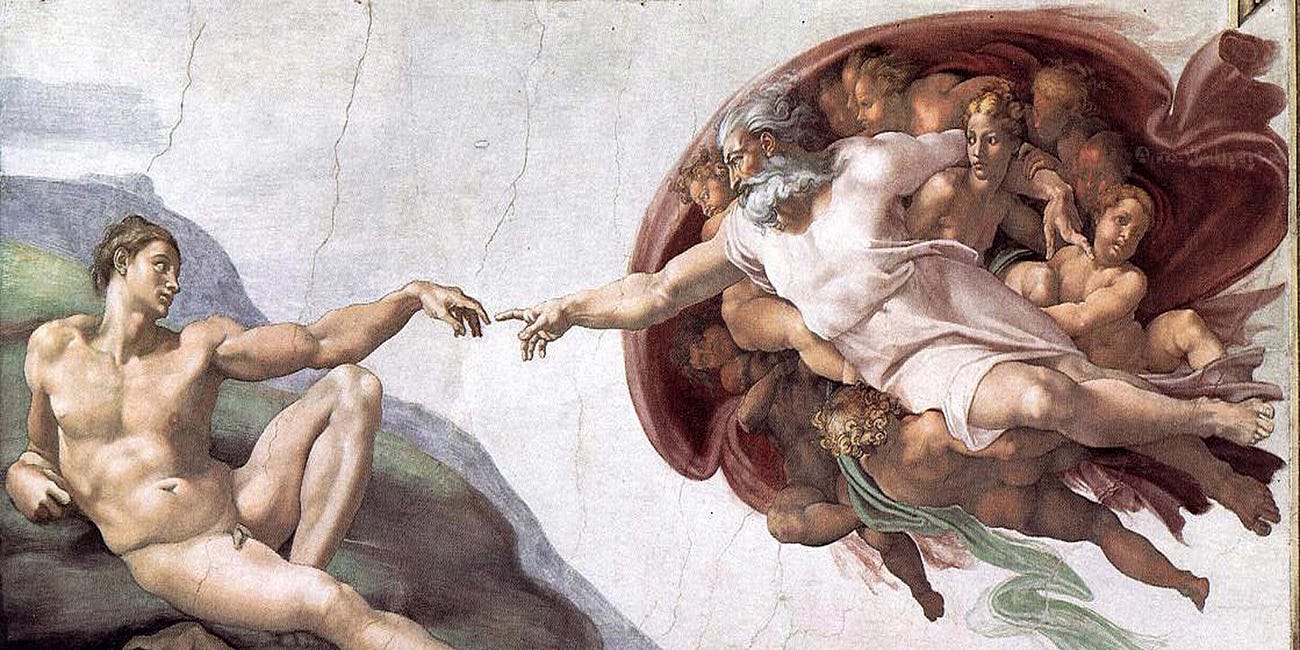Gnostic Thought and Myth Series Pt. 1: What is Gnosis?
Gnosticism was Christianity's vocal enemy, a rightful one at that. Let's begin...
The terms Gnostic and Gnosticism are derived from the Greek word gnosis, which is usually (albeit somewhat misleadingly) translated as “knowledge.” For a long time, most people were more familiar with the antonym of gnostic - namely, agnostic - meaning “someone who claims to know nothing about ultimate realities and concerns.” By contrast, a Gnostic is often defined as a person who seeks salvation by knowledge.
Let's get straight to it shall we…
Gnostics are those who believe in salvation attained through gnosis, direct experiential knowledge of the divine and oneself—without intercessory prayer, clergymen, or vicarious accounts—pure, first-hand experience.
Gnosis could be considered intuitive knowledge, as opposed to rational. With this “insight”, sight within, there is a direct and ongoing connection with the Divine.
In this series, we’re going to explore the many facets of Gnosticism. What is it…who were the key figures…how did they view the Cosmos…how did they view Jesus…is Gnosticism the true Christianity…
OH, WE SHALL DIG DEEP! PACK LIGHT FOR WE ARE IN FOR THE LONG HAUL 🍿
Delving into its rich symbolism, profound teachings, and timeless insights, we will explore why the Christians deemed Gnostics as heretics, enemies to the Church and how one should view that as a lighthouse for one's path.
After you…!
Gnosticism as Experience
When dealing with self-knowledge, you are dealing with the mind. The Law of Djehuti (Thoth, Hermes Trismegestus) is “The ALL is Mind; the Universe is Mental.” Out of the Mind of the ALL came all of “creation” and existence.
Scholars like Joseph Campbell and Carl Jung reference Gnosticism and suggest it has its origins and dealings in the psyche.
In reference to his first contact with Gnostic literature, Jung said:
I felt as if I had at last found a circle of friends who understood me.
Direct experiential knowledge is a key marker of a Gnostic. There is no one way to look at things for we are all here to experience IT in different ways.
Christians Do Not Like Creativity, But Gnosticism Values It
Creation is a process not a single event. In this process, the intelligence of the Mental Universe creates out of ideation, no morals or reason involved.
This involves the creation, man, giving meaning to the Creator by knowing himself.
Being microcosmic GOD on Earth, this same creativity lives within each and every one of us.
Like circles of artists today, gnostics considered original creative invention to be the mark of anyone who becomes spiritually alive. Each one, like students of a painter or writer, expected to express his own perceptions by revising and transforming what he was taught. Whoever merely repeated his teacher's words was considered immature - Pagels, 19
You can see this in the Christian nation of America. Creativity must be controlled and defined. Most importantly, in the Church, one is demonized for referencing anything outside of canonical scripture.
But, in the same breath, preachers have creative interpretations of the scriptures every Sunday to keep the Christian coffers copacetic and comfortable. As I digress…
Bishop Irenaeus, a very vocal heresiologist and opponent to Gnosticism said:
every one of them generates something new every day, according to his ability; for no is considered initiated [or: “mature”] among them unless he develops some enormous fictions.
Their fictions being the 52 and counting texts called the Nag Hammadi Library.
This Gnostic valuing, and inherent exercising, of creativity is the automatic valuing of individuality.
Christians, on the other hand, are a cult, gathered together as a result of centuries of fear, discrimination, subjugation, Inquisitions, and spiritual class- and elitism. All believing in a text, perverted by priests who lacked creativity from the get-go, needing to steal.
We can see, once again, that any first-hand experience, use of intelligence within, and trusting the intuitive insight over the intellect was Gnostic Thought.
A fundamental modus vivendi of the Gnostics was the unwavering recognition that the deepest part of you is not sinful by default, but ever connected to the fullness, also referred to in their mythology as the Pleroma.
I Believe vs. I Know
To be a Christian is to be a contender for the faith. Period. It isna very defensive religion that actually makes it followers helpless.
Believing requires reinforcing, support, intercession. Get the picture? Leading right into a third party, the Divine Avenger, Jesus Christ to save the day! It automatically deems you as needing, unable to figure anything out or rely on yourself. From birth, needing someone to save you. Sounds like somebody who wants you dependent on them your whole life when they really need you. Like a parasite.
However…to know is to need no co-signing, collaboration, approval, or validation. It is what is.
Just to be clear…there is nothing wrong with having faith in yourself, your experience, your knowing, your revelations. But to hold your faith in someone else's experience, living your life based on second hand account of another like Christianity? Sounds like someone needing their hand held, with potty training and handling their own spoon next in the queue. Animals do not need a book to be animals. They just are.
Gnostics never believed. They were known for adding in their own insights, their own breakthroughs, their own revelations.
Christianity is inculcated with the vicarious lifestyle, likened to social media today. Living through someone else's eyes and beliefs. Just like pornography, Christianity is literary interpretations of priest-perverted cosmology, a form of spiritual masturbation built on: “yeah and so-and-so said this.”
Anywho…
What makes a Gnostic?
As discussed, the Gnostic way of doing, being, and thinking has no definition. Hence, why most of the writings on them, putside of the texts, are those of heresiologists complaining as to why they did not get down with the Christian program.
However, gnosis can be described by Theodotus, a Gnostic teacher circa 140-160:
What makes us free is gnosis of who we were, of who we were; of what we have become; of where we were; of wherein we have been cast; of whereto we are hastening; of what we are being freed; of what birth really is; of what rebirth really is. - Theodotus
Notice that the Gnostics ask questions, looking to themselves for the answers.
They wrote about their insights and shared them with others, sparking insights. Not debating and arguing over worship.
Speaking to black people especially, this is what chaos sounds like. To ask questions, leaving no stone unturned.
You are not limited, nor are you easily definable for your home is the chaos realm.
Stop staying stuck in one spiritual system because it makes you comfortable.
STOP bringing Christianity into spiritual systems, thinking that is different.
Stop “worshipping” deities like Jesus and the Old Testament God and know that you are a compilation of all of them.
Use them to experience the ALL for yourself.
This is what we were doing for thousands of years before white men showed up, plagiarized your shit, then handed it back to you after wiping your memory. Wake up.
Gnostics created their own documents due to the ever changing and immeasurable field of chaos, field of thought, field of existence from whence we originate, the Pleroma.
Gnostics were persecuted by Christians said “this is the one story and this is how God works. Believe or die and burn in hell.” If you are a Christian, this is what you believe. You cannot deny guilty by association, reading the same book, and abiding by the same “laws” as those who killed, raped, stole, and destroyed in the name of the Father, Son, Holy Spirit and Jesus.
Gnosis as a Process of Soul Liberation
When speaking of Cosmology, one must know that the Divine, that original state of existence, is immeasurable.
In our “Christian Corruption of Cosmology” series we have been breaking down that Creation is a process of Causation, not one single event. That is a fairy tale to arrest rhe development of one mind and keep then in a child-like state, dependent on Pastor Mommy and Daddy.
From the Pleroma, which we will speak about in the next episode, human souls emanate and it is our duty to return.
Through attaining gnosis, we attain our salvation, breaking the illusion of separation.
That separation is upheld by the earthly realm. Although souls are from the Divine, they exist separate from it, extended while acting out as qualifying agents.
This knowledge attained is essentially a scouting report where you are to realize your oneness with everything, breaking the illusion of separation, also known as māyā.
Moving forward…
📆 In our next few episodes we will be exploring the Gnostic worldview. How did they view the Cosmos? In their mythology, who were the key players? Where do humans fit in the grand scheme of things?
As I said, pack light, for we will be delving into rich symbolism, revealing insights to those ready to hear and study themselves for themselves. Gnostic mythology and scripture holds depth that makes Christianity truly like a fairy tale.
If you want to explore Christianity with me from a cosmological perspective, exploring its plagiarism from ancient texts across the world, exposing it for the spiritual scam it truly is…START HERE ⬇️
The "Christian Corruption of Cosmology" Series Pt. 1: Christianity is Hilarious
Christianity is the most asinine compilation and plagiarism of ancient texts known to man. By far. Hands down. No questions asked.
Listed below each episode will be source material for your further study. ⬇️
📖 Sources:
Theodotus, cited in Clemens Alexandrinus, Excerpta ex Theodoto 78.2.
Gnosticism: New Light on the Ancient Tradition of Inner Knowing by Stephan A. Hoeller
The Gnostics Gospels by Elaine Pagels

